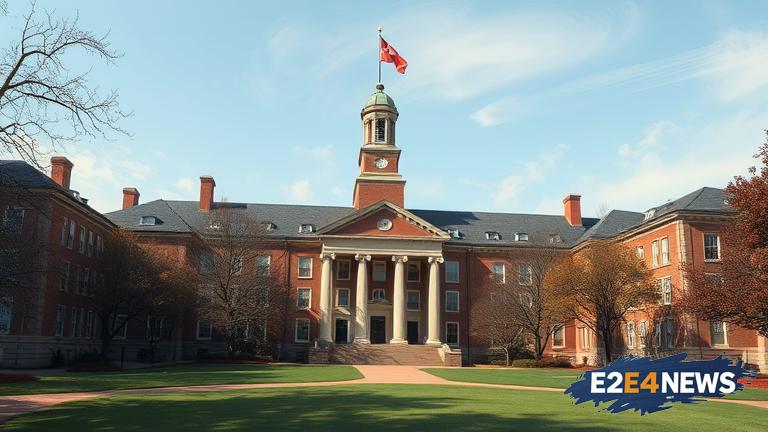A recent lawsuit filed by Harvard University has brought attention to the ongoing debate over the government’s handling of sensitive information and the rights of individuals to free speech. The university argues that the government is in violation of the First Amendment, which guarantees the right to free speech and assembly. The case centers around the government’s attempts to restrict the flow of information and silence individuals who speak out against its policies. Harvard University claims that the government’s actions are a clear infringement on the rights of its students, faculty, and staff. The university’s argument is based on the idea that the government’s restrictions on speech are overly broad and vague, making it difficult for individuals to know what is and is not allowed. Trump’s team, on the other hand, frames the issue as a matter of national security, arguing that the government must take steps to protect sensitive information from falling into the wrong hands. The team claims that the restrictions on speech are necessary to prevent the disclosure of classified information and to protect the country from potential threats. However, Harvard University and other critics argue that the government’s actions are a form of censorship, designed to silence dissenting voices and stifle debate. The lawsuit has sparked a heated debate over the balance between national security and individual rights, with many arguing that the government’s actions are a threat to the fundamental principles of democracy. The case has also raised questions about the role of universities in protecting the rights of their students and faculty, and the extent to which they should be involved in political debates. Harvard University’s decision to take on the government has been seen as a bold move, with many praising the university for its commitment to defending the rights of its community. The lawsuit is likely to have far-reaching implications, not just for Harvard University, but for universities and individuals across the country. As the case moves forward, it will be closely watched by civil liberties groups, academics, and politicians, all of whom will be eager to see how the courts rule on this critical issue. The outcome of the case will have significant implications for the future of free speech and academic freedom in the United States. The government’s actions have been criticized by many as an overreach of power, and the lawsuit has highlighted the need for greater transparency and accountability in government. The case has also sparked a wider debate about the role of the First Amendment in protecting individual rights, and the extent to which it should be applied in cases involving national security. Ultimately, the outcome of the case will depend on the courts’ interpretation of the First Amendment and the government’s actions, but one thing is clear: the lawsuit has brought attention to a critical issue that will have far-reaching implications for the future of democracy in the United States.
